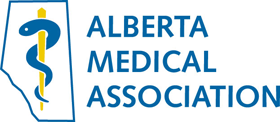Vaccine: A forced pause, a chance for clarity
January 28, 2021

Dear Members:
The development of COVID-19 vaccines has brought together some of the brightest minds around the globe and has made history by getting vaccines approved and to market within a year. The initial excitement and optimism surrounding the vaccine, however, has evolved into frustration due to limited supply and criticism over the staged roll out. It has been the topic of conversation in the media, around many dinner tables and of course within the profession.
Numerous members have emailed regarding vaccination issues. Some are offering to be part of the vaccination program - either through their own clinics or as volunteers. Others have written about concern for their vulnerable patients. Many are feeling forgotten, wondering where community care teams fit into the roll out, rightly emphasizing that the community is where 95% of patients with COVID-19 receive care.
In these early days, when vaccines are in short supply, a staged approach to immunization that prioritizes key populations is obviously required. To maintain public confidence, transparent and clear communication is essential about how decisions are made and what to expect. The recent delay in the production of the Pfizer vaccine has led to a hiatus on our vaccination efforts in Alberta. This pause provides an opportunity to discuss what has been accomplished to date and what we can do better going forward.
I wrote to the Minister (member login required) last week in an effort to open a dialogue on this subject. We should be leveraging all our collective resources if we want to achieve our common goal – the vaccination of as many Albertans as possible, as quickly and safely as possible.
There are four themes that require coordinated action by the parties involved:
- Understanding how community physicians may be involved in vaccination efforts.
- Determining where health team members in the community fit into the vaccination schedule.
- Education, including communication of plans, criteria and principles for the roll out.
- Addressing vaccine hesitancy.
The pandemic Community Supports Working Group that was created in the spring of 2020 was disbanded last fall by Alberta Health in favor of other communication venues. There is a physician representative from the Primary Care Networks sitting on the Alberta COVID-19 Immunization Coordinating Committee (ACICC), and the AMA has recently been invited to send a representative as well. I look forward to what can be achieved through two-way communication in this venue.
The AMA has been working hard to provide education to physicians, translating emerging knowledge into guidance for practice. We have delivered a webinar series (COVID Talks for Docs) to discuss COVID care and vaccination with participation of Alberta Health Services, the College of Physicians & Surgeons of Alberta, the Alberta College of Family Physicians and Alberta Health. Over 6,000 physicians and team members have taken part, and more than 6,000 have accessed archived recordings on the AMA website. Other educational content from the AMA includes our COVID-19 webpage on the AMA website, which is updated regularly. We are also working on a tool kit for community physicians and practice teams to support them in conversations with patients about the evidence-based value of vaccinations. This tool kit will help address the needs of individuals with special considerations, at-risk patient populations in panels, vaccine hesitancy and the management and reporting of side effects.
There may be additional roles that the AMA and profession can fill. Through discussions with AH and AHS we can explore possibilities, including:
- Helping to coordinate the immunization of community physicians and their staff when they become eligible.
- Working with key stakeholders to identify at-risk populations and ensure timely notification of vaccination back to primary care providers and medical homes.
- Leveraging current infrastructure to administer vaccines when a community compatible vaccine is available, and exploring opportunities where that infrastructure does not currently exist.
- Assisting with the vaccine administration in established clinics by supplementing the pool of casual staff.
We need to think ahead to the coming months when we will have more vaccine doses than we have capacity to deliver in our current state. The logistical and policy requirements for vaccinating millions of Albertans are unprecedented and I believe the public expects us to work together to achieve this monumental task.
I appreciate the input I’ve been receiving on this topic and others. Please reach out to me any time.
Your comments are welcome in the following ways:
- Communicate with me privately and directly by email if you would like a reply: president@albertadoctors.org
- Comment publicly on this President’s Letter on the AMA website (please be aware that comments are public, i.e., not members-only, even if you are logged in as a member).
Sincerely,
Paul E. Boucher, MD, FRCPC
President, Alberta Medical Association

1 comment
Post a comment
Commenting policy
This comment has been deleted.